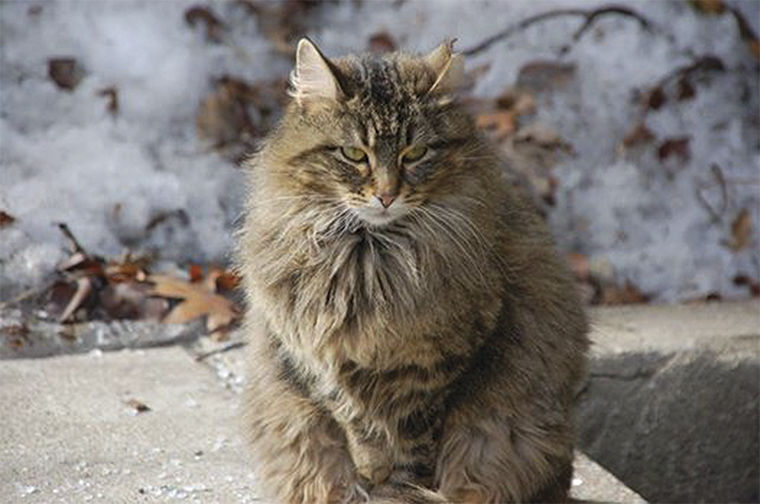Working-class cats keep rats away
Feral cats like this one, named Allie, are used to quell rat problems throughout Chicago.
November 30, 2015
Anne Beall’s backyard had a rat problem. Beall, a Chicago resident who owns a market research firm, said she had finally had enough when she saw a rat run across her husband’s foot.
“We were going to solve this problem or we were going to move,” Beall said.
That is when she learned about the Treehouse Humane Society’s Cats at Work Project that gives feral cats a job—and a home—scaring off the rats.
Beall said Treehouse officials inspected her property and interviewed her to ensure the cats would be in a safe environment. She was accepted into the program, and three cats were delivered to her property. The cats remained in crates for three weeks to become acclimated to the property, she said.
Beall said she instantly noticed an improvement in her yard, and the effects seem to be lasting.
Beall wrote a book about her experience with the cats titled “Community Cats: a Journey into the World of Feral Cats.” In the book, Beall speaks of getting involved with the program and becoming an advocate for feral cats.
Beall said the cats are fed daily so they will have more energy and hunt rats for play instead of food.
There are a number of programs similar to Cats at Work throughout the United States, including the Working Cats Program near Los Angeles by the Voice for the Animals Foundation.
“We have the working cats at LAPD stations, downtown LA flower marts and in peoples’ backyards,” said Debbie Wood, a coordinator for the organization, in a Nov. 19 emailed statement.
Wood said adopters must agree to provide a safe environment
and care for the cats for life. Treehouse has the same requirements in Chicago.
“Feral cat adopters feed the cats daily and ensure they’re in a safe environment for as long as they stay. Though after long periods of time they do sometimes leave,” Beall said.
While the cats remained outdoors, they did slowly warm up
to Beall’s family.
“We became very attached to them,” she said. “They became a part of our community.”
The Cats at Work Project was created four years ago, said Program Manager Liz Houtz. She said it began in 2011 with a pilot program in the 47th Ward and has grown “exponentially,” placing more than 450 cats in neighborhoods all around the city. Residents who call their alderman’s offices about rat problems are often referred to the program after other solutions have failed.
“Most of these folks have tried everything,” Houtz said. “Being able to provide a creative solution that really works is phenomenal.”








